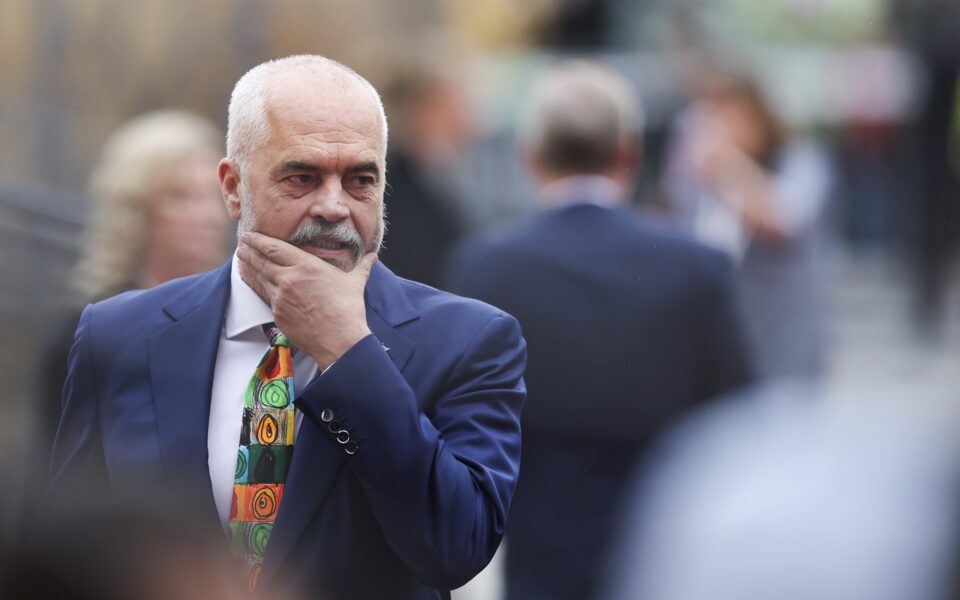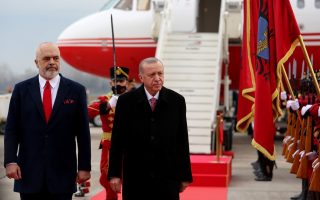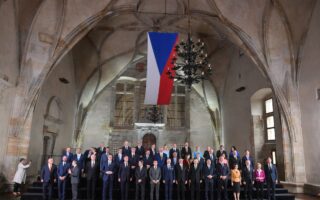Erdogan and Rama’s strange Balkan dance

A few days after two schools in Tirana were shut down on the orders of Turkish President Recep Tayyip Erdogan – according to Turkish media – because they were, apparently, “terrorist hubs” run by exiled cleric Fethullah Gulen, Albanian Prime Minister Edi Rama traveled to Ankara to meet with the Islamist leader.
The Albanian people learned of the trip from a photograph he posted on social media showing him with Erdogan, without offering further comment. It’s hardly surprising, therefore, that speculation about the purpose of his visit ran rife across the public sphere.
The solution to the mystery came just a few days later, in Strasbourg. Speaking to the Assembly of the Council of Europe, Rama sang Erdogan’s praises so passionately he caused reactions.
Frustration spilled over when he lashed out – in a manner well known in the Albanian Parliament, dripping with sarcasm – against the representative of the European Unified Left, Greek lawmaker Nina Kasimati, who criticized him for cozying up to Turkey. As a result, the heads of the political groups on the council canceled a dinner they had organized in his honor.
The Albanian people, and the young in particular, are leaving the country in droves, and not because they’re looking for Erdogan’s ‘paradise’
Rama chose that forum to laud his “big brother” and his strategic ally in the eyes of the Europeans, who have also been targeted by Erdogan’s threats. There’s something contradictory and inexplicable in political terms about this “romance” between the Albanian prime minister and the Turkish president: Because just as Rama seeks to attach his country more firmly to Erdogan’s Islamist agenda, the people in Albania have their eyes turned firmly to the West and to its way of life.
The Albanian people, and the young in particular, are leaving the country in droves, and not because they’re looking for Erdogan’s “paradise,” as hailed by Rama. The exodus has become so acute, in fact, that the British ambassador in Tirana appealed to the Albanian youth not to abandon their country.
And if, as Rama claims, Albania’s interests lie on the other side of the Aegean, then why does the country want to be a part of NATO and the European Union? Could it be, instead – as is said openly in Albania and whispered in the halls of European diplomacy – that it is Rama’s own personal interests that are leading him into this strange Balkan dance with Erdogan? And will the Europeans accept an Albania that is a Turkish satellite in the Adriatic and the central Mediterranean?
Obviously not, but in the absence of a viable alternative, they are forced to put all their eggs in Rama’s basket. The United States, however, is said to be “shopping around.”





